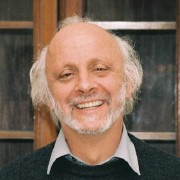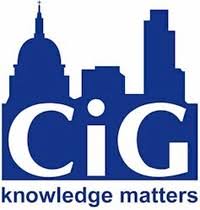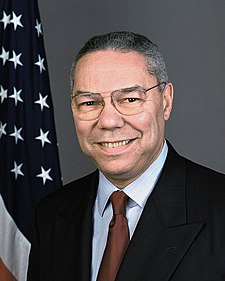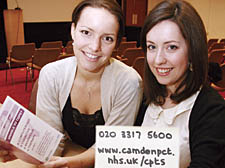Many apologies for taking extreme liberties with Bard again (To Blog or not to Blog? That is the question). This is all part of my attempt to come up with magnetic headlines to bring in readers.
Anyway on to the meat of this topic. The SLA (formerly The Special Library Association) has just (10 minutes ago) proposed a name change for the one hundred year old association.
I should immediately declare my hand and say that I was involved in (perhaps scarred by would be a more appropriate description) a previous re-branding task force which ultimately led to a name change vote at the Annual Conference in New York in 2003. Needless to say the name did not get changed on that day, although it was a close run thing, falling short of the two-thirds majority required by just a few votes.
Since then the information world has become even more fragmented with all kinds of information roles that don’t have the ‘L’ word in their title. Knowledge Manager, Intranet Manager, Competitive Intelligence Manager, Information Resources Manager are just some examples of the 2,000 different job titles held by SLA members. This new breed of information professionals need to feel that the SLA is a suitable home for them as well, of course, librarians working in specialised organisations.
Even more import are the research findings of a two year project lead by Fleishman Hillard (a leader in international marketing and communications). They tested a range of information profession related concepts and words and showed conclusively that anything with the ‘L’ word such as librarian or library were not perceived as valuable by senior managers. To quote Janice Lachance from her recent Sticks and Stones article in the latest issue of Information Outlook ;
Like detergent, the word ‘librarian’ is an accurate description of function, but not a value proposition. It says what you do for living, but it does not say what you can do for your organisation. Moreover, the research shows that ‘librarian’ is perceived as being dusty and antiquated-two words that should not be connected with either a profession or a professional association that prides itself on being ahead of the curve.
Working as I do at the British Library, which under the leadership of Lynne Brindley has established itself not only as a forward looking organisation engaging with cutting edge technology such as the award winning Turning the Pages, but has also proved itself to be of significant cultural and economic importance for Britain. To which the Business & IP Centre by supporting new businesses has contributed in its own small way.
However, from my previous sixteen years managing a specialist information service in a corporate environment, I recognise the problem of using the ‘L’ word in a commercial and business context. In my experience senior managers and directors are far more impressed with colleagues who are providing insights and identify trends, creating competitive advantage, anticipating industry changes, facilitating good decision making, providing value-added intelligence, sharing knowledge and using innovative technologies. Needless to say these were all terms which tested positively in the Fleishman Hillard research. And although in many many cases this is exactly what specialised librarians are actually doing, unfortunately their senior colleagues are likely to be judging them on their job title instead.
Below is the full text of the email anouncing the proposed name change:
Dear Neil:
John Cotton Dana, who founded SLA a century ago, wrote, “The name Special Libraries was chosen with some hesitation, or rather in default of a better…” We, as special librarians and information professionals you have elected to SLA’s Board of Directors, believe that validated research has identified a better name, one that will help all of us communicate our value in the workplace.
We are excited to propose that SLA change its name to the Association for Strategic Knowledge Professionals, or ASKPro. We encourage all SLA members to voice their opinion on this proposal by casting an electronic vote in a special referendum that will begin on 16 November and end 9 December. The result will be announced on 10 December.
The choice of this proposed name began when the board concluded in June that the alignment research conducted over the past three years revealed a clear challenge posed by SLA’s name: executives who make hiring decisions and allocate budget dollars do not understand what it means. Furthermore, they do not recognize or appreciate the contributions that special librarians and information professionals are making now or the potential they hold for building more successful organizations in the future. This disconnect endangers the jobs of our members, and we are determined to act.
The proposed name is the result of the same rigorous process used in the Alignment Project research . We began by compiling words, terms and critical concepts that both information professionals and executives agree best articulate the value and potential of the information profession and the association. We also received and considered input from members around the globe via Twitter, blogs, e-mail, FaceBook and listservs after the annual conference. The result was a long list of potential names. We then began eliminating names if they caused confusion, were too close to names already in use, posed legal difficulties, or could have different meanings in various countries. We also eliminated names that did not have good acronyms or shortened versions associated with them.
We feel that the name that emerged, the Association for Strategic Knowledge Professionals, strongly ties special librarians and information professionals to the strategic goals of their organizations, increases the perceived value of their services, and stresses their professionalism. We also want to emphasize that by changing our organization’s name, we will not change the name of our profession. It is important to note, that in fact, SLA members have more than 2,000 different job titles.
Before settling on our proposed name, we subjected it to a survey of U.S. and U.K. information professionals and executives in human resources, marketing, information technology and strategic planning in the corporate, academic, healthcare and government sectors. The results prove that the proposed name will help us accomplish some important objectives:
- It was well liked, fit well with a description of the association, and was judged relevant and credible.
- Executives felt it promotes our members as invaluable assets to their organizations; information professionals said it made them more likely to join the association.
- The abbreviated form, ASKPro, was very well received and also fulfilled the desire frequently stated in member discussions for a name with a meaningful acronym or shortened form.
The topic of changing SLA’s name has been much discussed in recent months in a variety of SLA chapter and division listservs and other forums, and board members have heard individually from many members. We have compiled a list of some of the most frequently stated questions and opinions and responses to them. In some cases, we have borrowed heavily from the words of members, and we thank all of you for your input. We hope you will take the time to read this document before continuing the conversation.
You will receive notification on 16 November that the e-vote system is open and have until 9 December to cast your vote. Please note especially that when and if the new name is approved, it will be a matter of months before the association can put it into use because of various legal requirements, the need for a new “look,” and other technicalities.
As your representatives, we are dedicated to your success, and we firmly believe that adopting a new name for SLA will further that goal. Ultimately, however, it is up to you to vote on a new name for SLA– the Association for Strategic Knowledge Professionals (ASKPro)–and launch us into our second century.
Sincerely,

Gloria Zamora, President, and the SLA Board of Directors
John Cotton Dana, who founded SLA a century ago, wrote, “The name Special Libraries was chosen with some hesitation, or rather in default of a better…” We, as special librarians and information professionals you have elected to SLA’s Board of Directors, believe that validated research has identified a better name, one that will help all of us communicate our value in the workplace.
We are excited to propose that SLA change its name to the Association for Strategic Knowledge Professionals, or ASKPro. We encourage all SLA members to voice their opinion on this proposal by casting an electronic vote in a special referendum that will begin on 16 November and end 9 December. The result will be announced on 10 December.
The choice of this proposed name began when the board concluded in June that the alignment research conducted over the past three years revealed a clear challenge posed by SLA’s name: executives who make hiring decisions and allocate budget dollars do not understand what it means. Furthermore, they do not recognize or appreciate the contributions that special librarians and information professionals are making now or the potential they hold for building more successful organizations in the future. This disconnect endangers the jobs of our members, and we are determined to act.
The proposed name is the result of the same rigorous process used in the Alignment Project research . We began by compiling words, terms and critical concepts that both information professionals and executives agree best articulate the value and potential of the information profession and the association. We also received and considered input from members around the globe via Twitter, blogs, e-mail, FaceBook and listservs after the annual conference. The result was a long list of potential names. We then began eliminating names if they caused confusion, were too close to names already in use, posed legal difficulties, or could have different meanings in various countries. We also eliminated names that did not have good acronyms or shortened versions associated with them.
We feel that the name that emerged, the Association for Strategic Knowledge Professionals, strongly ties special librarians and information professionals to the strategic goals of their organizations, increases the perceived value of their services, and stresses their professionalism. We also want to emphasize that by changing our organization’s name, we will not change the name of our profession. It is important to note, that in fact, SLA members have more than 2,000 different job titles.
Before settling on our proposed name, we subjected it to a survey of U.S. and U.K. information professionals and executives in human resources, marketing, information technology and strategic planning in the corporate, academic, healthcare and government sectors. The results prove that the proposed name will help us accomplish some important objectives:
It was well liked, fit well with a description of the association, and was judged relevant and credible.
Executives felt it promotes our members as invaluable assets to their organizations; information professionals said it made them more likely to join the association.
The abbreviated form, ASKPro, was very well received and also fulfilled the desire frequently stated in member discussions for a name with a meaningful acronym or shortened form.
The topic of changing SLA’s name has been much discussed in recent months in a variety of SLA chapter and division listservs and other forums, and board members have heard individually from many members. We have compiled a list of some of the most frequently stated questions and opinions and responses to them. In some cases, we have borrowed heavily from the words of members, and we thank all of you for your input. We hope you will take the time to read this document before continuing the conversation.
You will receive notification on 16 November that the e-vote system is open and have until 9 December to cast your vote. Please note especially that when and if the new name is approved, it will be a matter of months before the association can put it into use because of various legal requirements, the need for a new “look,” and other technicalities.
As your representatives, we are dedicated to your success, and we firmly believe that adopting a new name for SLA will further that goal. Ultimately, however, it is up to you to vote on a new name for SLA– the Association for Strategic Knowledge Professionals (ASKPro)–and launch us into our second century.
Sincerely,
Gloria Zamora, President, and the SLA Board of Directors
Send questions or comments to the SLA Board of Directors. You can also follow the discussion on Twitter or Share your thoughts in the Express section of the Alignment Portal.
——————————————————————————–
If you have any questions or comments about this communication, we would like your feedback. Please share your comments with nsansalone@sla.org.
This e-mail was sent to neil.infield@bl.uk.
This email was sent by: Special Libraries Association 331 South Patrick Street Alexandria, VA, 22314-3501, USA
©2009 Special Libraries Association. All Rights Reserved.
Manage Subscriptions | Update Profile | One-Click Unsubscribe




 As I mentioned a while back (
As I mentioned a while back ( Stephen Abram
Stephen Abram











 This weeks edition of the
This weeks edition of the